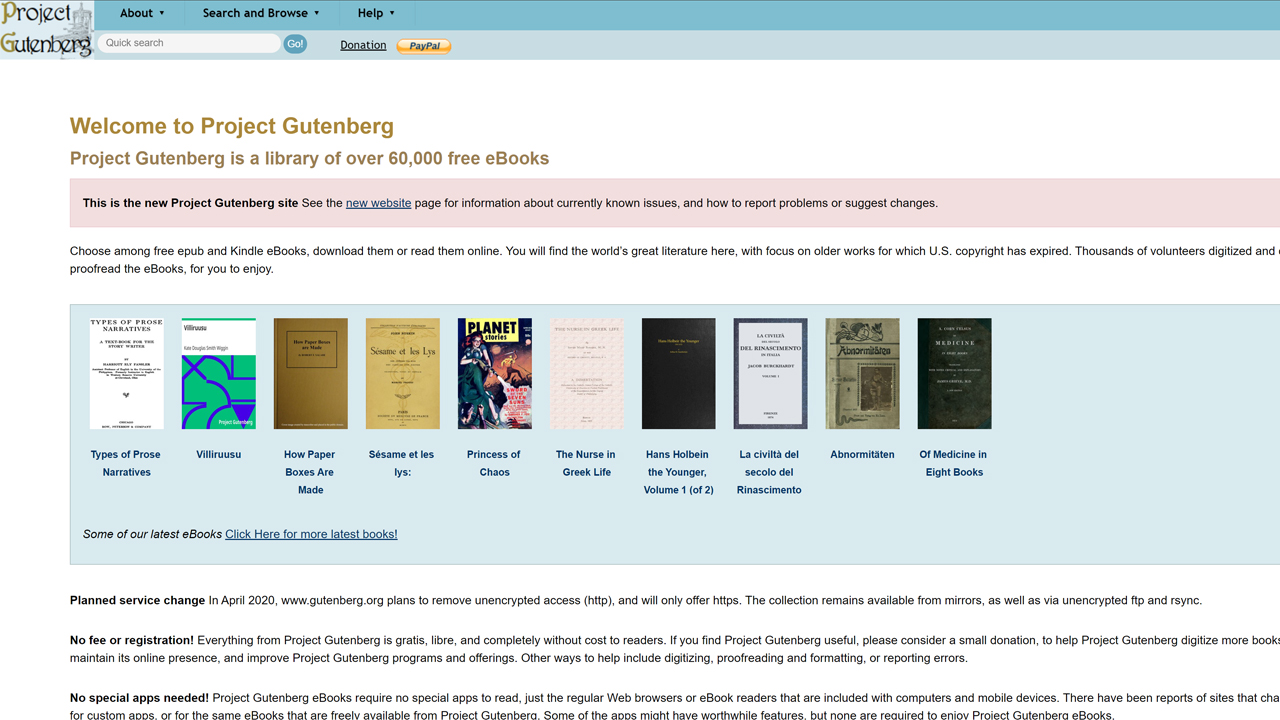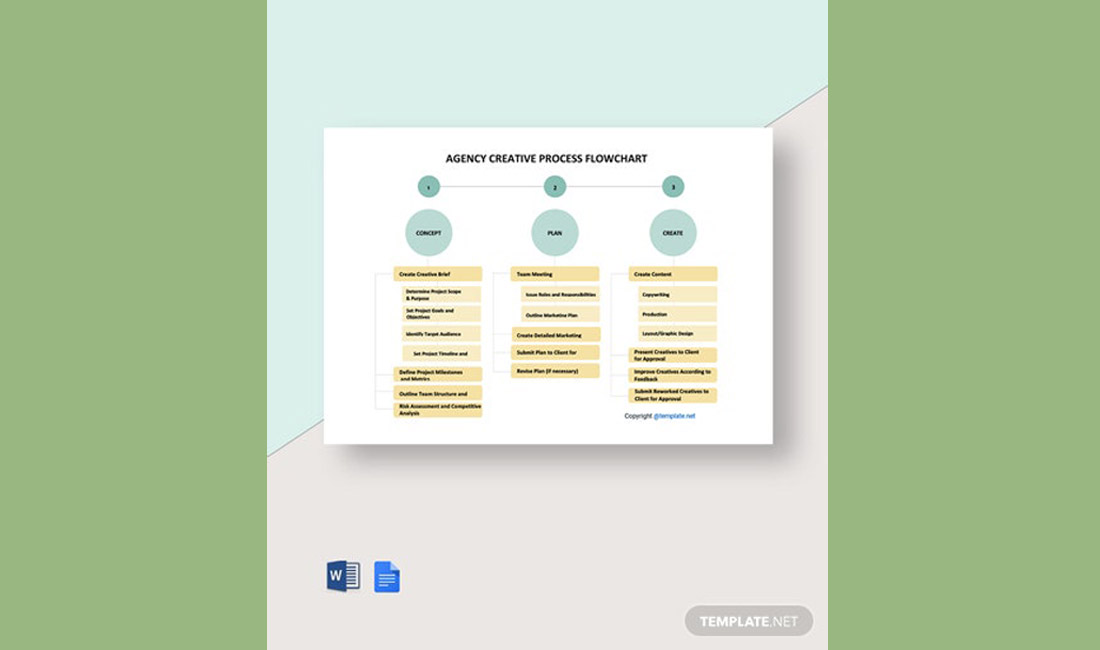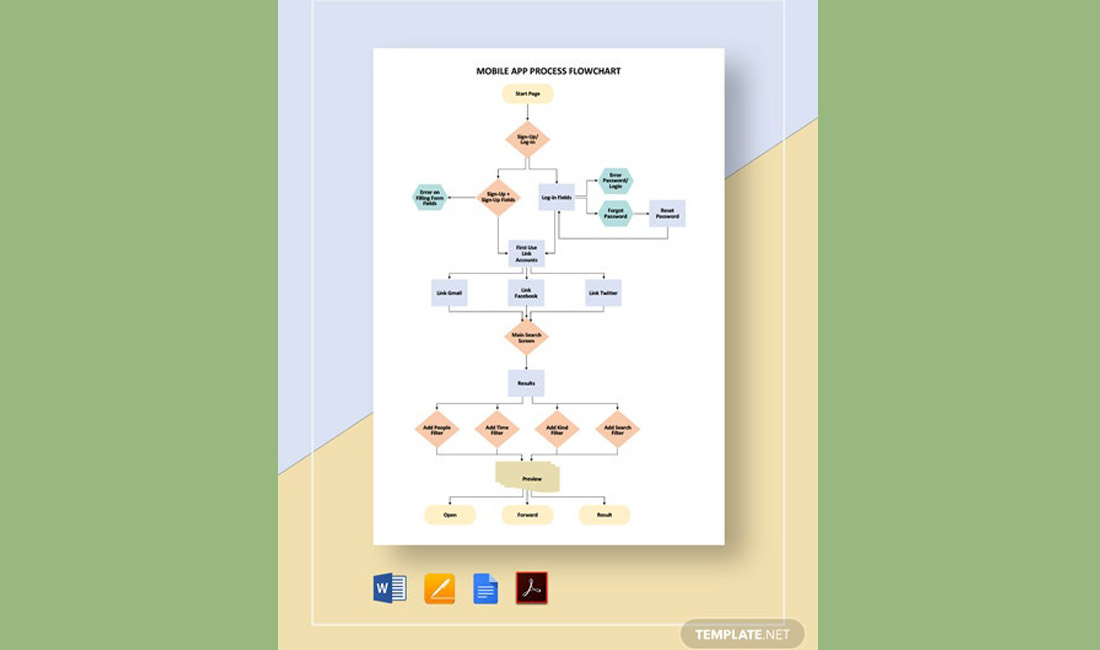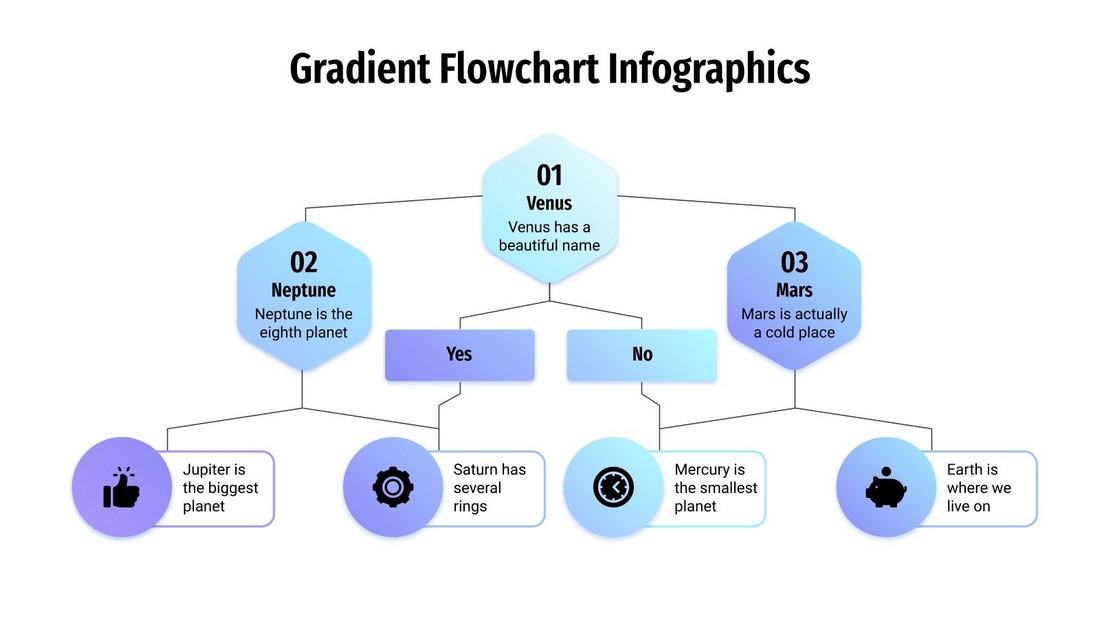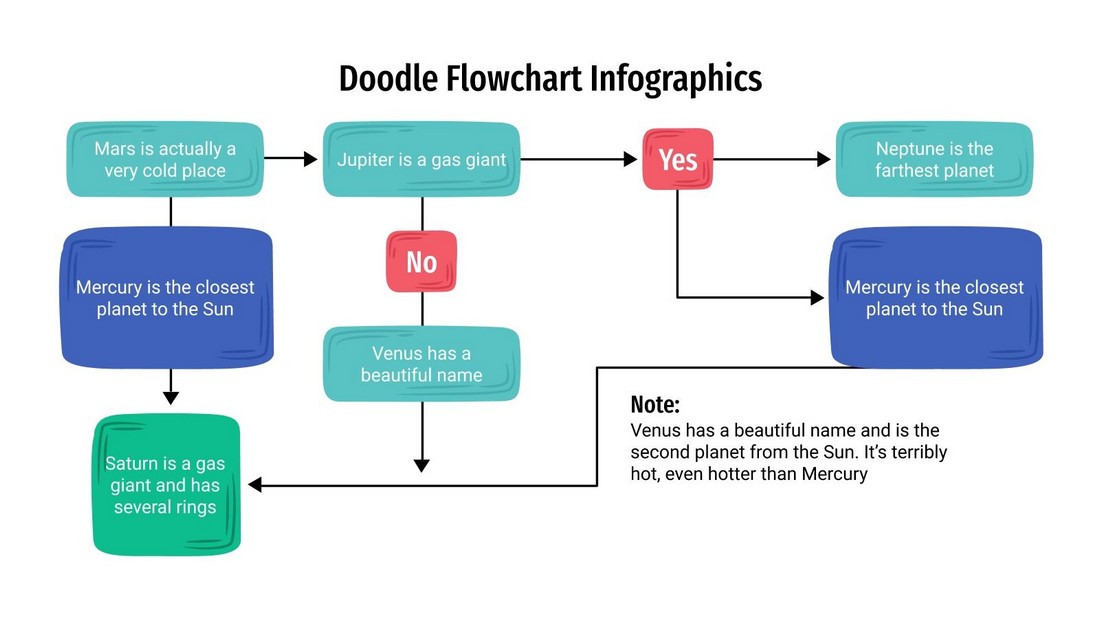1. Introduction
The interface of religion, entrepreneurship and human development has received inadequate attention from academics, politicians and development professionals.1 In their best-selling books, for instance, two of the world's most renowned development economists make no reference to entrepreneurship or religion (Sachs 2005; Easterly 2006). A cause and consequence of such oversight is that assumptions and stereotypes abound, including the notions that religion inhibits development, that business exploits the poor and the natural environment, and that development is a matter of humanitarian aid. There is no shortage of historical and contemporary evidence that can be used to validate such perspectives. However, this is not the full story. The convergence of entrepreneurship, religion and development can offer positive prospects for human beings and the world they inhabit.
Overlooking the existence—and hence potential—of this convergence is remarkable for two reasons. First, it is precisely in those areas of the world in which development experts are most interested that religion and entrepreneurial business are undergoing rapid growth. Second, the great German intellectual Max Weber (1864–1920) founded social science—the discipline utilised by many such experts—in part on the idea that religion can have profound socio-economic ramifications (Weber [1905] 1930).
The religion Weber considered of greatest socio-economic consequence was Christianity, especially in its Protestant form. Although his methods and findings are dubious by today's scholarly standards, Weber's genius lies in his discernment of a crucial link between religion, business and human development. His focus was on the premodern era and on the Northern hemisphere. Today, that link requires rigorous examination in the so-called Global South (developing and emerging economies), for this is where the current rise of Christianity and the concurrent rise of entrepreneurial business and social mobility will have profound consequences for the planet and its people.
The most promising response to this challenge is to examine the development potential of the form of Christianity that is growing the fastest. Generally referred to as Pentecostalism, this expression of Christianity can more accurately be given a term that reflects its diversity: the Evangelical Pentecostal Charismatic Movement (EPCM). This term allows for the fact that the movement is characterised by some of Pentecostalism's key traits (such as speaking in tongues, miraculous healing and deliverance from evil spirits), but also that it is a pluriform movement that manifests itself ecumenically in multiple Christian traditions and styles. The most promising form of entrepreneurial business on which to focus is the form that is growing the fastest in those regions—small and medium enterprises (SMEs). These are the world's foremost creators not only of jobs and material wealth (reflected in the word 'fortune' in this article's title), but also of recycling and low-carbon technologies (Biondi et al. 2002; Fairbanks et al. 2009; Hoksbergen 2009; Kongolo 2010; Kacou 2011; Grudem and Asmus 2013; Griffiths and Tan 2014; Zafar and Mustafa 2017; Muriithi 2017; Apostolopoulos et al. 2018; Gates 2021). In short, SMEs have immense social significance, regardless of country or region, and regardless of whether or not they are formally recognised as 'social enterprises'.
Against this background, this article seeks to address three questions that reflect Weber's legacy and are crucial to the prospects for the human and environmental flourishing of the religion–business–society nexus that is the focus of this Special Issue of the Religions journal:
-
What is it about the EPCM (used in this article interchangeably with Pentecostalism) that makes it significant for human development?
-
Will the EPCM and its associated virtues inevitably decline as entrepreneurial capitalism and its associated prosperity rise?
-
Are there any alternatives ('functional equivalents') to the EPCM? In other words, could some other worldview (religious or secular) take its place in terms of practical impact?
Given the academic lacunae identified above, these questions need to be addressed if researchers, policy makers, development practitioners, social impact investors, social entrepreneurs and business leaders committed to sustainable development are to be sufficiently assured that paying attention to the development potential of the EPCM is worthwhile. Those belonging to these constituencies who are associated in some way with the EPCM include people who self-identity as 'kingdom entrepreneurs', 'faith-driven entrepreneurs', 'redemptive entrepreneurs' and 'BAMers' (leaders of 'business as mission' enterprises). When these questions arise, they can feel perplexed or threatened by them, simply because they lack an intellectual framework to address the questions.2 An article of this length cannot provide any such framework, but it can suggest some academically grounded starting points from which these three questions can be approached by inquirers of any religious or non-religious background.
2. How Does the EPCM Promote Development?
The 'Protestant ethic' that lies at the heart of Weber's thesis is that the Reformation helped spawn wealth-enhancing beliefs, attitudes and behaviours, including hard work, honesty, diligence, discipline, frugality, a sense of calling and the rational and productive stewardship of resources (Weber [1905] 1930). The paucity of interdisciplinary scholarship at the nexus of Christianity, entrepreneurship and development is such that research into these and other 'factors of production' with comparable economic significance is still in its infancy. As it develops, it will need to include unintentional as well as intentional dimensions. This reflects Weber's argument that capitalism was not a deliberate objective of Protestantism but that it organically arose from the ethic of everyday conduct that Protestantism espoused. In other words, the wealth-generating power of capitalism was an outcome, rather than a goal, of certain belief-driven behaviours amongst Protestants. Although it made many of them sufficiently wealthy to be able to rise out of poverty and to experience some of the benefits of a bourgeois lifestyle, the primary aim of their industriousness was not the accumulation of material riches but to please a holy God and to fulfil their worldly calling.
It has been argued that this aim within the EPCM has fostered several cognitive, behavioural and social characteristics that are significant for human development, despite the influence of the so-called 'prosperity gospel', with its belief that God wishes to grant supernaturally (rather than by dint of effort and ingenuity) physical and material well-being to those who trust God. These characteristics include a sense of calling, a hopeful future-mindedness, the deferral of gratification, entrepreneurship, rationalisation, voluntary association, self-empowerment (especially of women), church-based social outreach and the encouragement of trust.3 Each of these factors deserve sustained attention, as they have far greater potential in developing practical solutions to poverty and environmental degradation than do the pietistic, world-denying, and supernaturalist tendencies that are generally the focus of Pentecostal studies. Here, however, there is only room to make the point that each of these factors is intimately related to a strong sense of personal and corporate purpose, taking only the first factor—a sense of calling (or 'vocation')—as an example.
Interest in, and research on, the role of purpose in stimulating economically, socially and environmentally sustainable business is rapidly rising. Much of this is in conscious response to conventional business models based on the centrality of profit (Wang et al. 2016; Richter and Dow 2017; Hsieh 2017; Laamanen et al. 2018; Kim and Scheller-Wolf 2019; Atif 2019; Bamber and Borchers 2020). As part of its Future of the Corporation Programme, the British Academy has initiated several interdisciplinary studies that critique these models and suggest alternatives. They find that, although early corporations were often founded with a clear sense of public purpose, the past half-century has seen a shift towards regarding profit alone as the true purpose of business. The reports' authors argue that national governments have proven unable to address this because of the speed with which globalisation and technology have advanced.4
This apparent constriction of corporate purpose is striking in view of a survey of business leaders conducted by PWC (PricewaterhouseCoopers), which found that 79 percent of them regarded purpose as central to business success. The same survey also found, however, that 68 per cent admitted that purpose plays little role in their businesses' decision-making processes. Company leaders, the report concluded, hesitate to 'walk the talk' (PWC 2016). Clearly, increased attention given to corporate purpose amongst business leaders does not necessarily mean that corresponding action is taken.
Acting on purpose tends to be easier for smaller private firms. Although most business research on corporate purpose is focused on large corporations, a survey conducted by ABA Design during the COVID-19 pandemic focused on leaders of SMEs. It sought to ascertain whether the crisis meant that SMEs were embracing organisational purpose, or deeming it a luxury they could not afford. It found the former to be the case, with 77 percent of respondents willing to refer to their companies as 'purpose-led', while two-thirds believed their company's purpose gave them a competitive advantage. A sizeable majority of the SME leaders surveyed who considered their companies not to be purpose-led nevertheless regarded corporate purpose to be 'very important' to their companies' future. The message, then, from SME leaders seems to be that business purpose is of such importance that it must not be jettisoned, not even in the face of widescale economic crisis.
This finding appears to resonate with business research amongst consumers and employees. This research suggests that the majority consider themselves more loyal to brands that are purpose-driven, even when those companies experience hard times (O'Connell and Gibbons 2016; Mayer 2018; Izzo and Vanderwielen 2018; Vredenburg et al. 2020; Edmans 2020). For the Harvard business scholar Rebecca Henderson, purpose-driven organisations able to command such loyalty have two elements: a sense of mission to make the world a better place and a commitment to treating people with dignity and respect (Henderson 2020, p. 95).
Within the EPCM, these two elements are closely related to its emphasis on personal and corporate vocation due to the credence the movement gives to choice. This stems from its core belief that the call to follow Christ is a personal yet public decision. Adherents typically understand the Christian life as a calling, initially accepted through spiritual rebirth, but pursued through self-denying service and constant spiritual renewal that require daily choices to be made. The fact that most people's socio-economic conditions have historically lain outside the sphere of choice helps explain why Pentecostalism is so 'modern'. The freedom to choose (perceived or real) being a key tenet of modernity, the EPCM tends to be predisposed not only to the benefits of technology but also to social movements agitating for greater human empowerment, dignity, personhood and progress. This predisposition provides a means to resist mindsets dominated by fatalism, dependency, entitlement and victimhood. It opens EPCM adherents, instead, to the advantages of change, risk, social innovation, entrepreneurial endeavour and community transformation (Cox 1996; Martin 1998; Cunfu and Tianhai 2004; Miller and Yamamori 2007; Woodberry 2008; Schlemmer 2008; Micklethwait and Wooldridge 2009; Corbett and Fikkert 2009; Greer and Smith 2009; Shah and Shah 2011; Bernstein and Rule 2011; Banerjee and Duflo 2011; Centre for Development and Enterprise 2012; Bohwasi 2015; Smith et al. 2021).
The ramifications this has for personal and corporate purpose represent significant potential for human development, as the issue of purpose is not restricted to wealthy economies. Studies by Edelman involving twenty-two thousand respondents in fourteen countries, including China, India, Mexico and Brazil, indicate that between half and two-thirds of consumers allow purpose to determine their choices. An even higher proportion exists amongst younger consumers, and around forty-six percent believe that companies have better ideas for solving their countries' problems than governments (Edelman 2017, 2018). Understanding the role of vocational purpose in EPCM thought and action serves, therefore, to challenge an over-reliance on the prosperity gospel as an interpretive framework for assessing the potential of the EPCM in human development, a mistake that tends to lead to portrayals of the movement as essentially anti-modern, pre-modern or 'primitive'. Despite sound evidence to support such portrayals, there is also sound evidence that the purpose-driven thought and action characteristic of many EPCM adherents stimulates a 'holy worldliness' that involves a rigorous and productive engagement with the modern world, even if that engagement fails to conform with conventional political structures (Lehmann 1996; Etounga-Manguelle 2000; Shao 2001; Martin 2005; Zhuo 2005, 2006; Bao 2006; Schlemmer 2008; O'Neill 2010; Woodberry 2012a, 2012b).
3. Will the EPCM and Its Virtues Inevitably Decline?
In assessing the development prospects of Christianity, the question of whether Christianity has limited growth prospects, because any growth will inevitably be reversed by the free enterprise economy it helped to create, must be considered. Weber expected and predicted this scenario, most notably in his famous notion of the 'iron cage'. This is the idea that, in capitalist economies, social actions become less governed by the 'free market' in religion that proceeded from the Reformation as they become increasingly influenced by efficiency, productivity and goal-oriented mindsets and behaviours (Weber [1905] 1930, pp. 155–83).
A brief comparison between the USA, Europe and Latin America offers some perspective. The resilience of the United States to the forces of secularisation that have swept across Europe since the 1960s suggests that intense competition between religious organisations in a religious 'free market' serves as a more effective bulwark against such forces than the granting of special privileges (political or otherwise) to certain religious denominations, which has generally been the norm in Europe (Innaccone 1998; Kosmin and Keysar 2006; Yang 2006; Ferguson 2011).5 Far from having a weakening effect, intense religious competition appears to strengthen the EPCM because it makes entrepreneurial adaptation to local environments an imperative. Even in Latin America, where traditional Roman Catholicism has dominated the religious sphere, Pentecostalism has helped create a more open religious market. The competition this has demanded has stimulated an entrepreneurial dynamism and drive that has helped to keep hedonism at bay and to preserve the asceticism and thrift that Weber regarded as foundational to capitalism (Martin 1990; O'Neill 2010, pp. 60–86; Martin 2011; Offutt 2015, pp. 88–130).
It is still too early to know whether this fate awaits the descendants of the millions of new believers that constitute the rise of religion in the Global South, where relations between the state and religion, and between religions, show great regional variation. It is also uncertain how much of the current growth relies on denominational competition and how much reflects the 'religious fertility premium'—the tendency of devoutly religious people to have larger families than non-believers. The fact that the growth of religion is exponential, rather than incremental, suggests that this premium certainly plays some role. But predictions that such growth will inevitably lead to the world dominance of fundamentalist religion, when 'the righteous inherit the earth' (Kaufman 2010), fail to take adequate account of the correlations between affluence and religious decline that were so apparent to Weber and have become part of the 'secularisation thesis' with which his name is associated.
As noted earlier, Weber lacked the sophisticated quantitative tools of analysis that have subsequently been developed within sociology.6 Often, he had to make do with appeals to earlier social commentators, not least to the founder of Methodism, John Wesley (1703–1791), who identified the same correlation within the Methodist movement and warned against its corrosive effects. Wesley did so most notably in two of his most famous sermons: 'The Use of Money' and 'The Danger of Riches'.
I fear, wherever riches have increased, the essence of religion has decreased in the same proportion. Therefore I do not see how it is possible, in the nature of things, for any revival of true religion to continue long. For religion must necessarily produce both industry and frugality, and these cannot but produce riches. But as riches increase, so will pride, anger and love of the world in all its branches.7
Whatever the grounds for Wesley's heart-felt misgivings and Weber's more detached forecasts about the negative impact of affluence—some of which may have been rooted in the warnings given in the eighth chapter of Deuteronomy in the Hebrew Bible—similar predictions about religion's decline have increased significantly since their time. So, too, have calls for that decline to accelerate, especially from prominent and vociferous 'new atheists' in the early twenty-first century (examples include Dawkins 2006; Hitchens 2007). Yet, religion has continued to flourish, even in the face of the very things deemed to undermine it, such as rationality, science, modernisation, democracy, capitalism, freedom, choice, technology, prosperity, pluralism and secularism. Despite the prevalence of deprivation theories that regard religion as compensation for material misery, at no time in human history has religion had as many voluntary and committed adherents as it does in the current era of unprecedented global prosperity (Jenkins 2002; Lewis 2004; Jenkins 2006; Kim and Kim 2008; Micklethwait and Wooldridge 2009; Toft et al. 2011).8
If only for this reason, development scholars and practitioners need to be careful not to overlook religion's role. Claims that religion is no match to science, technology and the market in terms of its pervasiveness and influence fail to match the facts and betray a twentieth-century Eurocentric view of the relationship between religion and human culture. While many development experts reflect the Weber thesis in assuming that modernisation goes hand-in-hand with secularisation, there is plenty of evidence that they can also travel in opposite directions (Martin 1990, 2005; Cox 1996; Yang 2012). Just as religion has always thrived in the world's most modern country—the USA—it is growing with the spread of modernity worldwide (Noll 1992, 2009; Putnam and Campbell 2010; Hefner 2011; Wenzel 2011; Cladis 2012; Gauthier 2020). The choice and freedom that are associated with technology and democracy appear to be reinforcing, rather than dissolving, religion. In view of the greater religious competition and pluralism this is producing in many areas, fundamentalist hegemony is not the inevitable outcome that is often feared (Huntington 1993; Brouwer et al. 1996; Barber 2003; Boff 2006; Herriot 2009; Rosenberg 2009; Orsi 2018).
A related issue, noted earlier, is whether once the Protestant virtues at work in the economy have helped swell the middle classes, those virtues themselves will decline (whether or not church attendance declines). Intellectuals since Marx have grappled with this question, often by noting the propensity for capitalism to devour its own parents and/or children because it undermines the very discipline and self-restraint that fostered its rise and are fostered by its pre-eminence. Empirical assessment of this claim is problematic, as the role of religiously inspired virtues amongst the middle classes has not yet been adequately researched. But Peter Berger has offered a tentative view. He suggests that, although the Protestant virtues are alive and well in nascent capitalism, they may become obsolete in mature capitalism because the creativity of the knowledge economy demands hedonism rather than asceticism. The virtues that help provide upwards mobility for individuals to move out of shanty towns, he submits, are of little use to those seeking their fortune in Silicon Valley (Berger 2001, p. 452). It is possible, however, that Berger's proposal has been influenced too strongly by the hedonism that is often conveyed, implicitly or explicitly, in the products and marketing of contemporary technology. When the lives of those who helped establish Silicon Valley's pre-eminence are considered, there is plenty of evidence that hard work, discipline, delayed gratification and rationalism lay beneath whatever trappings of a hedonistic lifestyle they adopted and conveyed (Solomon 1992, pp. 65–73; Delbecq 1999; Delbecq and Weiss 2000; Lowe 2001; Isaacson 2011; Vandekerckhove 2014; Scaruffi 2016; O'Mara 2019).
4. What Practical Alternatives Are There to the EPCM?
Recent years have seen a growing scholarly interest in the socio-political ramifications and impact of Christianity worldwide.9 Against that background, this article contributes to the overall theme of the Special Issue of this journal by addressing the question of Christianity's potential to impact society through enterprise and the beliefs, attitudes and values that enterprise embodies. But some consideration needs to be given to the possibility that other religions or worldviews can act as functional equivalents of Christianity (especially in its EPCM form) in terms of socio-economic impact. Weber himself embarked on a large-scale comparative sociology of religion with the express purpose of finding examples of 'worldly asceticism' in other religious traditions (Weber [1905] 1930, 1946, 1951). Although he reached a negative conclusion, the continuing quest has delivered more positive outcomes, the 'post-Confucian ethic' being the most frequently cited contender, associated with the meteoric rise of East Asian capitalism (Tu 1984, 1989; Jinguo et al. 2000; Lim and Lay 2003; Ramirez and Rubio 2010; Pezzutto 2019; Nawrot 2020; Zhang 2021).10
Some scholars strongly contest this association (for example, Chan 1996; Kwon 2007). But the suggestion that other worldviews can act as analogues to 'the Protestant ethic' because their 'affinities' to it allow them to be 'carriers' (to use Weberian terms) does nothing in itself to weaken the case for the economic significance of the EPCM. For Weber, Confucianism was unable to produce capitalism because of its support for hierarchy and dominating forms of government, though Berger may be right to contend that Weber's view of Confucianism is too heavily based on the official version championed by the ruling elites of imperial China, rather than on that of ordinary people (Berger 2001, p. 451; 2004, p. 7). In a similar vein, Harrison highlights Confucian values that help temper its hierarchical and authoritarian elements (Harrison 1992, pp. 85, 115). Further research is needed on this matter, but in the meantime, there can be little doubt that there are 'elective affinities' (to again use a Weberian term) between the Protestant ethic and Chinese Confucianism (Harrison 1992; Martin 2011, pp. 73–74; Zhang et al. 2012; Leong et al. 2013).
Giving full acknowledgement to the role of Confucianism in the modern development of China ought not, however, block from view the influence of Chinese Christianity (especially its EPCM variety). This cannot be dismissed as a Western religious influence for two important reasons. First, Chinese Christianity has strong indigenous roots, going back at least as far as the seventh century (Moffett 1998, pp. 287–323; Charbonnier 2007, pp. 21–68; MacCulloch 2009, pp. 245–54). Second, the rapid growth of Christianity since the end of the Chinese Cultural Revolution of 1966–1976 has not been a Western-led project. Indeed, the rise of Protestant churches is derived largely from Chinese movements that had already gained some form of independence before Mao Zedong assumed power in 1949 (Xi 2010; Noll 2011, pp. 130–32; Zhuo 2018, pp. 123–208). It has also come about, in part, through the pro-market thinking and practice of the country's post-Mao elite, including government officials, some of whom have promulgated the idea that the success of the West is attributable, in large part, to Christianity (Sun 2017). For obvious reasons, much of the evidence for this is anecdotal. The academic William Jeynes recalls, for instance, a conference he attended at Harvard Business School at which Chinese senior business leaders were evidently more interested in the relationship between Christianity and economic prosperity in the United States than in the conference agenda (Michelle Vu 2011).
Such interest is both reflected and described in the work of the distinguished Chinese scholar Zhuo Xinping. He highlights the role of the Christian understanding of transcendence in the development of the West and finds traces of this in the 'Weber fever' amongst economists and sociologists in contemporary China.11 Weber has helped open their eyes, Zhuo Xinping contends, to the 'major spiritual enlightenment, ideological motive power and guarantee of value provided by Christianity to the rise of the European modern society'. For him, Christianity supplied a potent spiritual force that sustained Western development (Zhuo 2005, pp. 2–3; 2006).
Zhuo Xinping's words are echoed in the work of two Chinese government economists. Zhao Xiao has argued that churches in the USA have been more crucial to that country's success than any other national assets 12; and an equally distinguished yet anonymous scholar has written, after leading a research team tasked by his government to discover why the West had been so successful, as follows:
One of the things that we were asked to look into was what accounted for the success, in fact, the pre-eminence of the West all over the world. We studied everything we could from the historical, political, economic, and cultural perspective. At first, we thought it was because you had more powerful guns than we had. Then we thought it was because you had the best political system. Next we focused on your economic system. But in the past twenty years, we have realized that the heart of your culture is your religion: Christianity. That is why the West is so powerful. The Christian moral foundation of social and cultural life was what made possible the emergence of capitalism and then the successful transition to democratic politics. We don't have any doubt about this.
Increasing numbers of China's burgeoning middle classes also appear to have little doubt about this. The estimated population of Christians in China was two million when Chairman Mao came to power in 1949. Yet, seventy years later, this had risen to around one hundred million, despite the disincentives of persecution and martyrdom.14 For many of the estimated six to seven million Christian converts per year amongst the upwardly mobile in China, embracing Christianity goes together with embracing the modernity with which they associate it (Cunfu and Tianhai 2004; Yuen-Sang Leung 2004; Yang 2005; Zhuo 2005, 2006; Cao 2011; Ferguson 2011; Travagnin 2018; Lim 2019; Gomes et al. 2020).
Continued friction and pressure notwithstanding, the Chinese government, at times, shows signs of a qualified openness towards Christianity. This appears to be based on its nervousness about the apparent downsides of the rise of capitalism, including its potential (noted earlier) to erode the very capitalist virtues Weber identified as the Protestant ethic. It sometimes appears to regard these as the kind of virtues China needs to help prevent social disintegration, and could help address the disillusionment and ideological emptiness following the end of the Cultural Revolution. While always on the alert for autonomous cultural revolutions, the Chinese government appears implicitly to acknowledge the national benefit that is gained when citizens live purposeful and disciplined lives that strengthen families and neighbourhoods. While (unofficially) deserting communism in favour of capitalism, it has on occasion recognised that the free market works best, and is most easily legitimised, when it is embedded in the kind of supportive moral and cultural order that Christianity has proven able to provide, which does not only encourage initiative and creativity, but also self-restraint (Cunfu and Tianhai 2004; Cao 2011, 2018; Yang 2012; Wang and Lin 2014).
This highlights three important points that need to be borne in mind when considering the future of the EPCM and development. First, what matters is the behavioural norms of the Protestant ethic, rather than that the ethic is Protestant per se; the point has already been made that other worldviews and their related behaviours can act as functional equivalents to the EPCM. However promising the development prospects of this movement may be, other traditions and worldviews that stimulate similar norms also have a role. The influence of Jews in Poland, Roman Catholics in Northern Italy, Armenians in the Middle East, Buddhists in Japan and Jains in India are just some of the examples from history (Bellah 1957, pp. 117–61; Berger 2004, p. 12; Atherton 2008).15 As the eminent Harvard economist David Landes noted in his landmark study, 'One does not have to be a Weberian Protestant to behave like one' (Landes 1998, p. 363).
Second, the Protestant ethic, or a functional equivalent to it, is a necessary but not sufficient condition for human development (Berger 2004, p. 11). Weber's claim was not that Protestantism was the only important factor in the economic development of the West, but that it was a Kritische Spitze—a crucial element. Unfavourable economic conditions, such as a lack of access to resources, could have severely hampered its impact. Hypothetically, modern capitalism could even have emerged without the Protestant ethic, though it would have been a different kind of capitalism (Berger 2008, p. 155; Bruni and Milbank 2019). Third, it is not necessary for an entire population to adopt the Protestant ethic (or something like it); a highly active minority adhering to it should suffice, and this has indeed been the case in the meteoric rise of some Asian economies (Berger 2004, p. 11). Therefore, if the EPCM were to decline, this in itself would not necessarily hamper human development, despite whatever corollaries there may be between spiritual and economic decline.
However, the conclusion that Christianity is irrelevant or obsolete because all that matters to modernisation are perfectly reasonable ideas and behaviours cannot be drawn with any certainty. Such a conclusion fails to take adequate account of the fact that the ideas and behaviours that produced modernity, while presumably always available to human beings, have, in reality, only been spread and sustained in close association with the rise of Christianity (Landes 1998, pp. 58–59; Ferguson 2003, 2011; Novak 2004; Woods 2005; Mangalwadi 2011; Spencer 2011; Holland 2020). As already noted, due acknowledgement also needs to be given to the role of Judaism, though the Orthodox Rabbi and political commentator Daniel Lapin estimated in 1999 that ninety per cent of scientific discoveries over the preceding millennium occurred in nations in which Christianity was dominant (Lapin 1999). Given the foundations of Christianity in Judaism and in the teachings of the Hebrew Bible, the following pregnant passage from the eminent sociologist Rodney Stark, though polemical, arguably reflects historical realities at least as accurately as those polemical advocates of the secularisation thesis who emphasize the socio-economic determinants of religion to the detriment of religious determinants of positive socio-economic conditions. Although it could reflect a Eurocentric 'civilizing' view of Christianity that takes insufficient account of orientalist and postcolonial perspectives, it was written at a time in which Stark considered himself an agnostic:
Christianity created Western Civilization. Had the followers of Jesus remained an obscure Jewish sect, most of you would not have learned to read and the rest of you would be reading from hand-copied scrolls. Without a theology committed to reason, progress, and moral equality, today the entire world would be about where non-European societies were in, say, 1800: A world with many astrologers and alchemists but no scientists. A world of despots, lacking universities, banks, factories, eyeglasses, chimneys, and pianos. A world where most infants do not live to the age of five and many women die in childbirth—a world truly living in 'dark ages'. The modern world arose only in Christian societies. Not in Islam. Not in Asia. Not in a 'secular' society—there having been none. And all the modernization that has occurred outside Christendom was imported from the West.
Stark's views on the positive social impact of Christianity have evoked considerable critique, some of it equally polemical (Carroll 2012; Gonçalves 2016; Hasan 2016; Payne 2016), although more recently Tom Holland and Benjamin Friedman have expressed similar perspectives to that of Stark (Holland 2020, pp. xxii–xxix; Friedman 2021). Regarding the positive social impact of the EPCM in particular, much more work needs to be done than the surface-scratching in this article. This is partly because scholarship on Pentecostalism has given greater attention to the socio-economic determinants of the movement than to ways in which the movement positively impacts society (whatever may be its negative impacts).16
5. Conclusions
This article has not sought to use the theme of this journal—a Christian perspective on social enterprise—to focus on 'Christian' enterprise, nor indeed on 'social' enterprise. It has done so in part on the understanding that all enterprise that promotes human and environmental flourishing is social and spiritual, however 'commercial' and 'secular' it may be in its modus operandi. Taking a broad conceptual and sociological approach, it has focused on three related issues that are of intellectual and practical importance to anyone engaged (intellectually or practically) with the role of Christianity in human development, whether or not they subscribe to its faith. Weber has been taken as the starting point of this enquiry, not because of his academic precision but because of his deep appreciation for the role played by religion in economic activity. His thesis was not that Protestantism intentionally created capitalism but that it advocated and nurtured an ethic of everyday conduct from which capitalism emerged. For Weber, capitalism and its material advantages were outcomes, rather than goals, of a set of belief-driven behaviours. The capacity of Protestants for invention, innovation and rational organisation sprang from their desire for the heavenly wealth they stood to gain in fulfilling their worldly calling. Weber's claim was not that these behavioural characteristics abruptly appeared in the sixteenth century, but that Protestantism had the effect of enhancing and normalising them amongst sizeable sections of the population needing to work hard to keep poverty at bay.
Despite his inaccuracies in making this case, adopting a Weberian starting point has opened up the intellectual space necessary at the much-neglected interface of religion, entrepreneurship and development to address three questions, and make three corresponding suggestions, that are pertinent to the development potential of the EPCM. This is not because this movement models with any precision Weber's characterization of Protestantism but because some of their common features bear a 'family likeness'. Using the notion of calling as an example, the first suggestion is that the cognitive, behavioural and social characteristics of the EPCM that are significant for development relate closely to personal and corporate purpose—a theme rapidly gaining traction in business theory and practice as a key to flourishing enterprise. Secondly, in contrast to what Weberian and secular perspectives tend to assume, the EPCM and its associated virtues will not necessarily decline as economies grow. The opposite appears to be occurring in many of the world's fast-growing economies. Thirdly, while alternatives (such as Confucianism) are possible, the EPCM demonstrates considerable potential in terms of practical development impact. While this potential ought not to be exaggerated, neither should it be lost on those who emphasize how socio-economic conditions impact religion. Just as all faith is inextricably tied up with the complexities of human experience, so religion, economics and development co-exist in a highly complex relationship of mutual cause and effect. For this reason, this paper has sought to focus - as best it can in the light of available research - on issues relevant to one aspect of that relationship (the potential of the EPCM in human development) that has received relatively little attention. It has limited itself to addressing three future-oriented questions about a kind of religion and associated behaviours that Weber called Protestant, which today are reflected in developing and emerging economies, most of which are witnessing the burgeoning both of the EPCM and of enterprise.
